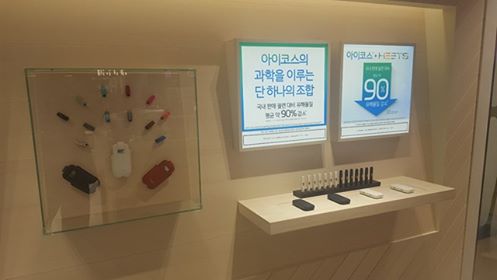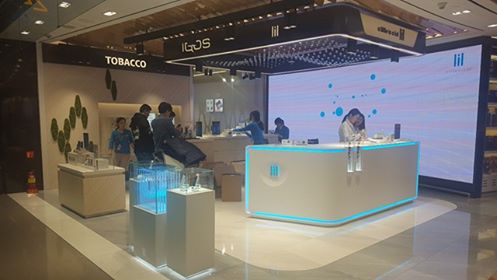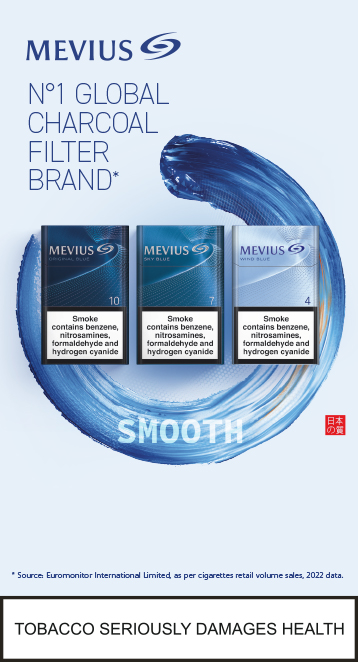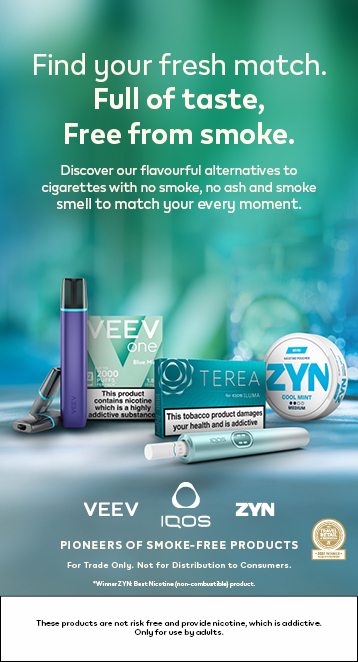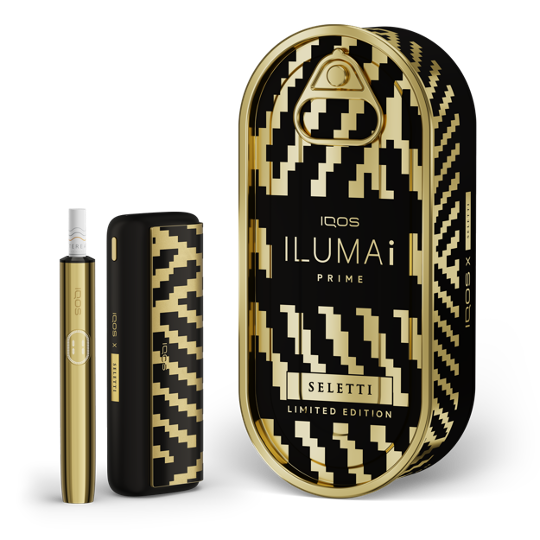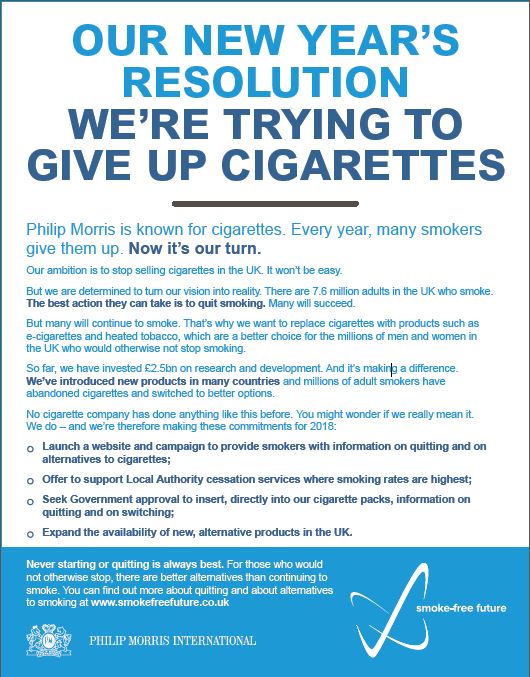
Click on image to enlarge
UK/INTERNATIONAL. Philip Morris International’s campaign to “give up” selling cigarettes in the UK domestic market is part of a broader global commitment – encompassing duty free – the company has told The Moodie Davitt Report.
The cigarette manufacturer launched a ‘New Year’s Resolution’ campaign in the UK this month in which it stated its ambition “to stop selling cigarettes in the UK”. According to Statista, Philip Morris International is the world’s biggest tobacco firm by enterprise value (US$175 billion) and the second-biggest by net sales. It is an equally prominent player in the global duty free channel.
The extraordinary advertisement, which ran in several UK newspapers this month, said that the “best action” the 7.6 million adults in the UK who smoke can take is to quit the habit. But for those that continue to smoke, Philip Morris International (PMI) said it wanted to “replace cigarettes with products such as e-cigarettes and heated tobacco, which are a better choice for the millions of men and women in the UK who would otherwise not stop smoking”.
When asked about how the campaign might be reflected in the duty free industry, a PMI spokesperson told The Moodie Davitt Report: “This UK initiative demonstrates the global commitment of our company to have cigarettes replaced by smoke-free alternatives as quickly as possible.
“We believe that Philip Morris International has an important role to play in developing science-based smoke free alternatives that will offer a better choice for people who continue to smoke.
“Close to four million smokers worldwide have already quit smoking by switching to IQOS, our most advanced smoke-free product, which is now available in 31 markets, including in duty free locations around the world.”

IQOS heats tobacco without burning it and generates no smoke, instead emitting a “flavourful aerosol”, PMI says.
When asked about the potential for more electronic cigarette smoking zones at airports, such as that seen with Lotte Duty Free at Incheon International Airport’s new Terminal 2, the spokesperson responded: “Scientifically substantiated innovative smoke-free products represent a significant opportunity for public health. They are a much better alternative for adult smokers compared to continued smoking.
As reported, Lotte Duty Free’s flagship store at Incheon features an IQOS boutique (pictured below).


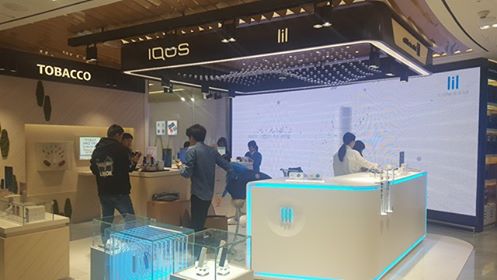
“Moreover, a scientific study conducted under international standards also demonstrated that the aerosol generated by IQOS does not have a negative impact on indoor air quality and confirmed that IQOS is not a source of second-hand smoke.”
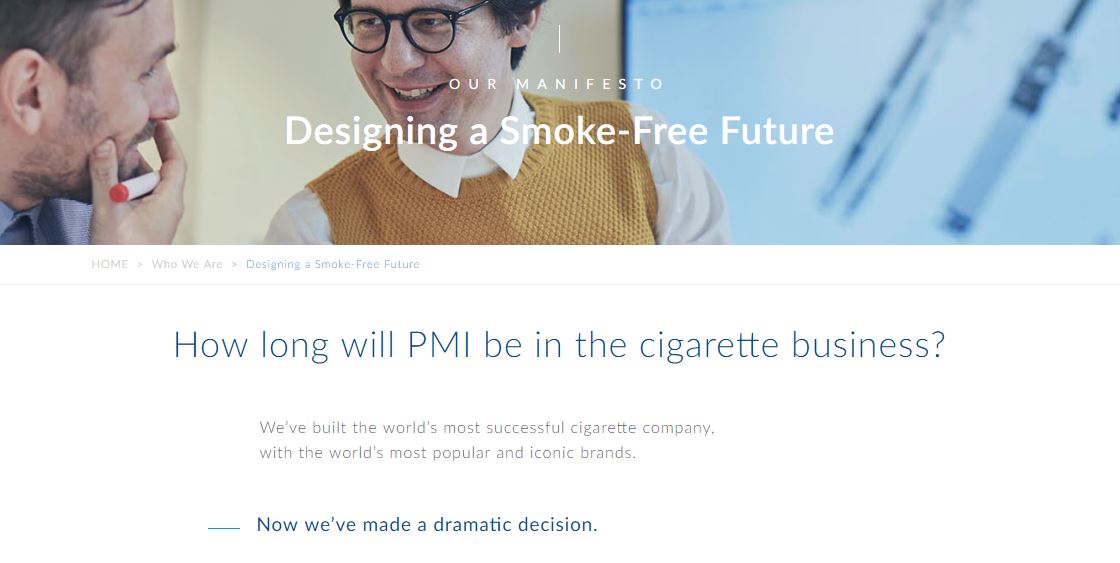
PMI is one of the world’s largest tobacco corporations and its decision to build its future on smoke-free products is, as the company’s own website recognises, a “dramatic” one.
“We’ve built the world’s most successful cigarette company, with the world’s most popular and iconic brands,” it says. “Now we’ve made a dramatic decision. We will be far more than a leading cigarette company. We’re building PMI’s future on smoke-free products that are a much better choice than cigarette smoking. Indeed, our vision – for all of us at PMI – is that these products will one day replace cigarettes.
The company notes a number of factors influencing its strategy shift:
- Millions of smokers are seeking “less harmful, yet satisfying, alternatives” to cigarettes and “society expects” companies to act responsibly.
- PMI says it has the resources to pursue its vision because of its historic success, crediting the “imagination and perseverance” of employees for creating the smoke-free products it sells today.
- The company has decided to do something “big” rather do nothing at all, creating a positive legacy.
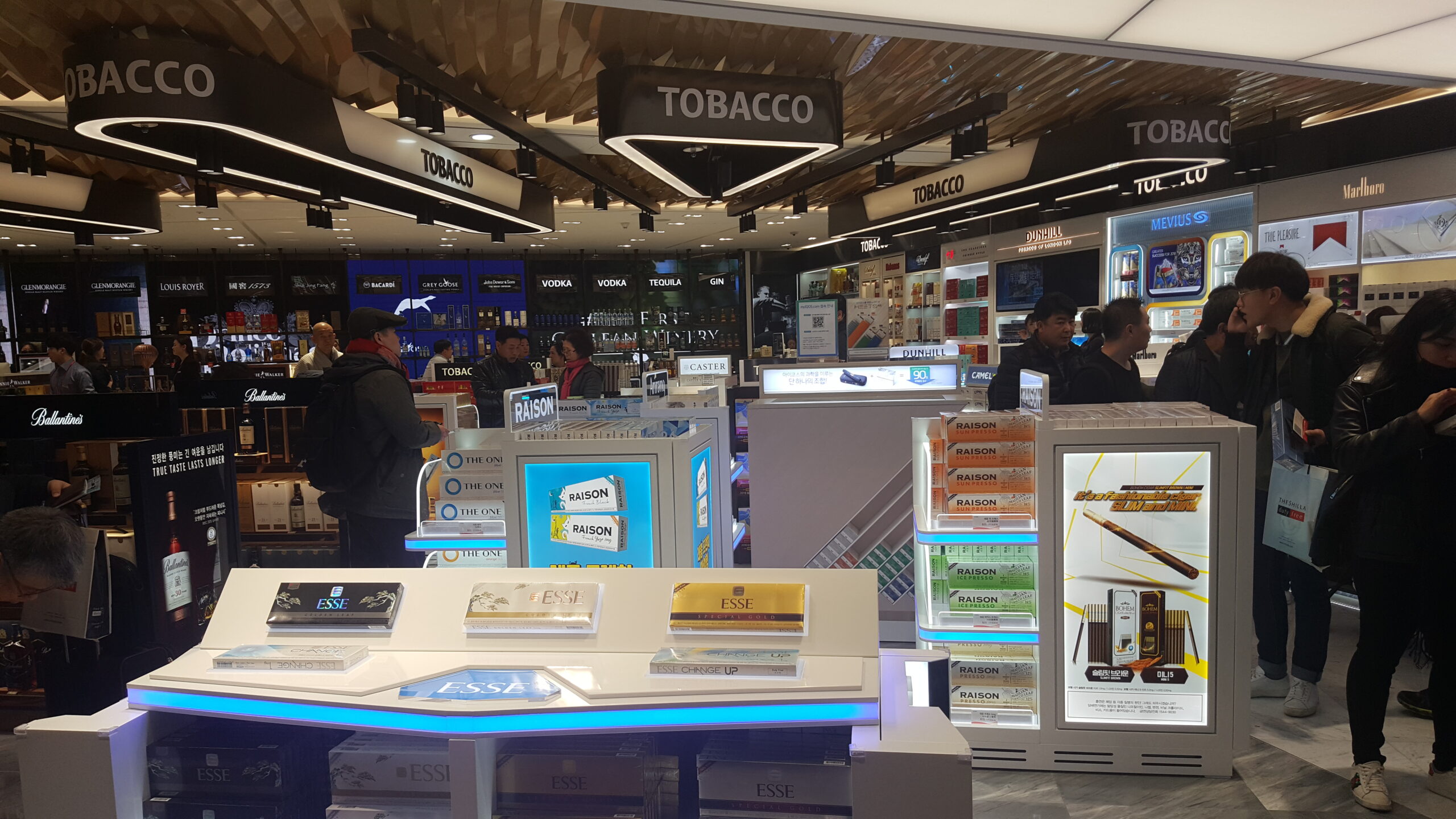

In the UK advert, PMI recognises that some observers might be sceptical of its motives. In response, the company listed a series of commitments for 2018, including the launch of a new website, www.smokefreefuture.co.uk, which offers information on quitting smoking and on switching to smoke-free products.
PMI is also seeking UK government approval to insert information on quitting and on switching directly into its cigarette packs.
Note: We’ll bring you more news, reaction and analysis on this extraordinary tobacco industry development over coming days.
e-cigarette boom in local markets may not translate to airport retail Some airport retailers as well as suppliers are looking at the electronic cigarettes (e-cigarettes) market as an alternative revenue source within the tobacco segment, but legislation is a barrier in key markets, writes Kevin Rozario. Today (18 January), Lotte Duty Free opened two e-cigarette boutiques (from KT&G’s Lil and Philip Morris International’s IQOS lines, pictured below) plus an e-cigarette ‘smoking’ zone, as part of its liquor, tobacco and packaged foods concession at Incheon International’s new Terminal 2. Could this signal the future of the cigarette category in travel retail?
Statistics show skyrocketing sales of e-cigarettes from US$20 million in 2008 to a forecast US$2.76 billion for 2017 (source: Statista based on 2015 data). However, it looks like the scope for widespread e-cigarette boutiques and/or smoking zones may be limited in duty free and travel retail – at least for now. A Changi Airport Group spokesperson told The Moodie Davitt Report bluntly: “E-cigarettes are not allowed in Singapore.” The gateway is not in a position to take advantage of the opportunity due to a strict ban on imitation tobacco products by the Health Sciences Authority. At another global hub, Dubai International, the prospects seem better. While imports of e-cigarettes are not allowed in the United Arab Emirates, distributors are awaiting permission from local authorities, said a local source. At Dubai Duty Free, Saba Tahir Senior Vice President – Purchasing, explained: “Approval for the selling of these product needs to be obtained first from the authorities before further discussions on boutiques or e-smoking zones can take place. A number of important tobacco distributors are currently engaging with the authorities.” Tahir confirmed there is a definite sales opportunity evidenced by the amount of people using e-cigarettes in countries where the devices are permitted. She added: “Suppliers generally say to expect 3% to 4% of the cigarettes, cigars and tobacco category. In terms of value, that would amount to between US$5-7 million in yearly sales revenue.” |


